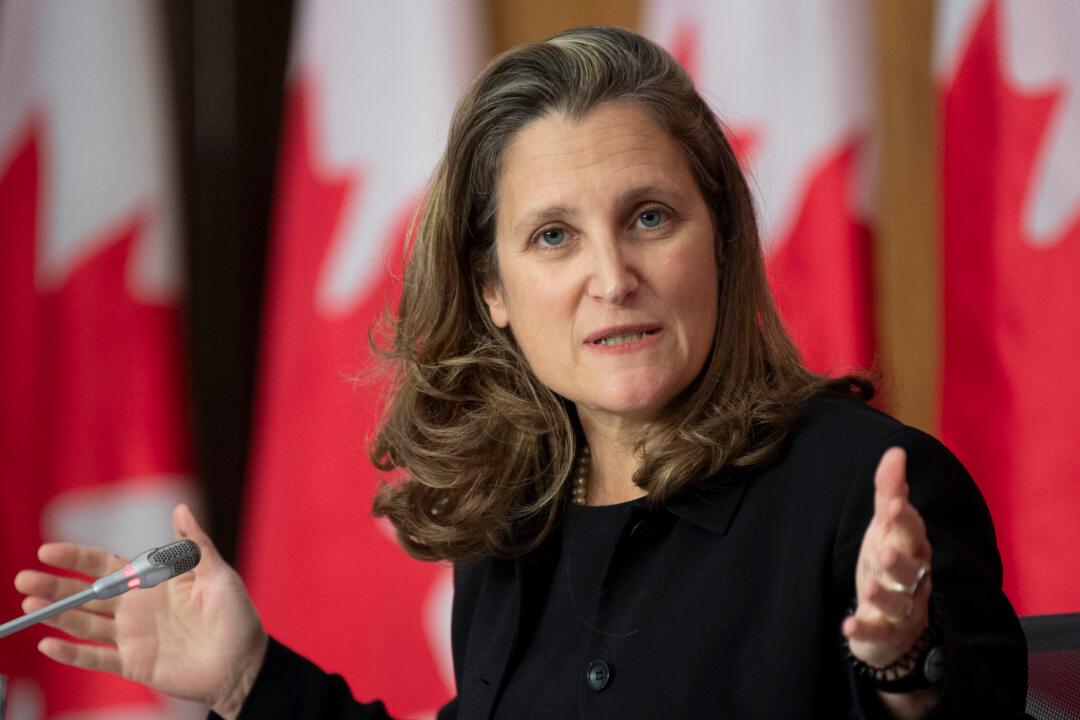Finance minister Chrystia Freeland defended the Liberals’ use of fiscal stimulus and deficit spending in what she called the “wisest macro-economic approach” to sustain Canada’s economy through the “coronavirus recession.”
In her keynote speech at the Toronto Global Forum virtual event on Oct. 28, Freeland outlined the rationale behind the fed’s spending in response to the pandemic.





